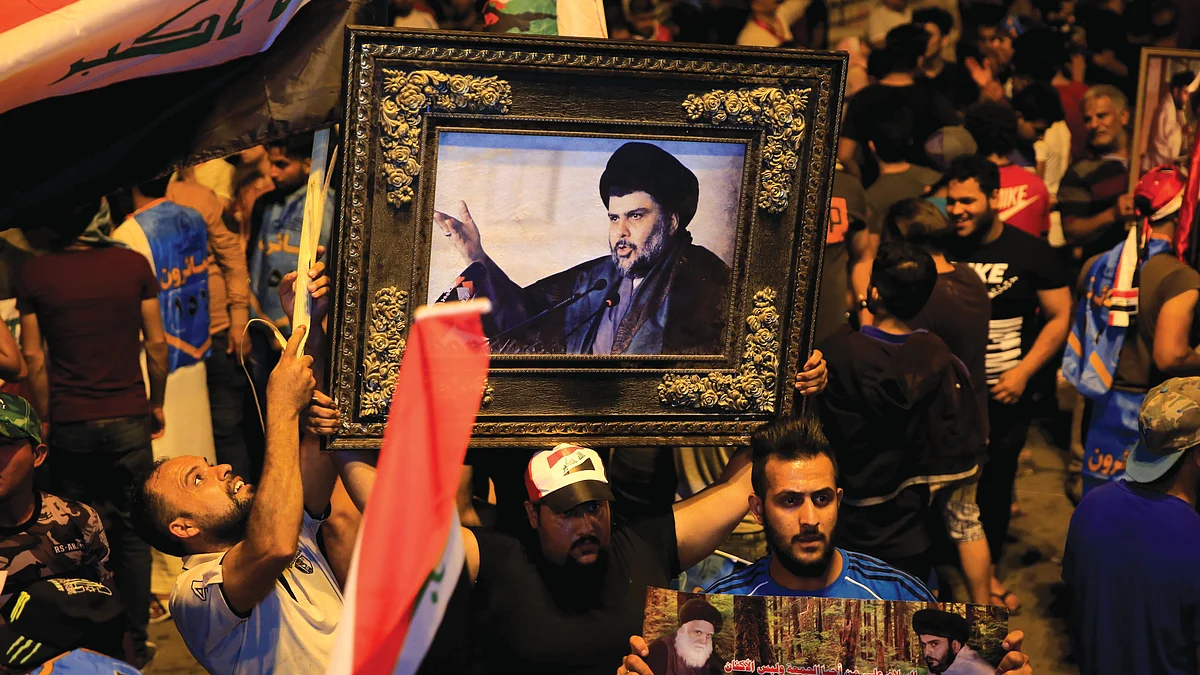Elections leave Iraq on the edge and fingers crossed
National elections in Iraq on 12 May were the fourth since the overthrow of the Saddam regime in 2003 and the first since the defeat of the Islamic State late last year

National elections in Iraq on 12 May were the fourth since the overthrow of the Saddam regime in 2003 and the first since the defeat of the Islamic State late last year. After 15 years of war, insurgency and civil conflict in which nearly two million people were killed and the national physical and social fabric destroyed, these elections took place in a remarkably peaceful atmosphere.
The turnout was less than 45 per cent out of 18 million eligible voters, reflecting disenchantment, politicians made up for this lackadaisical mood with their robust enthusiasm. Seven thousand candidates, including over 2000 women, representing over 200 parties, competed for 329 seats in the House of Representatives. Before elections, about 150 parties set up 27 coalition groups or ‘alliances’.
The results were surprising:
*The Sairoon (“On-the-Move”) Alliance, headed by the cleric Muqtada al-Sadr, that included the Iraqi Communist Party, won 54 seats.
*It was followed by the pro-Iran Al Fatah (“Conquest”) alliance, largely made up of the Shia militia Hashad al Shaabi, headed by Hadi al Amiri, that grabbed 47 seats;
*Al Nasr (“Victory”), led by incumbent Prime Minister Haidar Al Abadi won 42 seats
*The State of Law alliance of former Prime Minister, Nouri al Maliki won 25 seats.
Muqtada al-Sadr has had a chequered career and is even now an enigma. He is the son of the distinguished Arab Shia cleric, Mohammed Sadeq Sadr, who had vied for influence with the other senior Iranian-origin clerics in Iraq and was executed by Saddam Hussein. During the Saddam period and later the US occupation, Muqtada opted to stay and fight in Iraq, unlike other activists who sought refuge in Iran.
In the Kurdish region, the two principal parties, Kurdish Democratic Party (KDP) and Patriotic Union of Kurdistan (PUK), largely retained their numbers with 25 and 18 seats respectively.
There are two noteworthy aspects of this election. First, while the coalitions were defined in sectarian or ethnic terms, many of them fielded candidates of mixed backgrounds and shaped their appeal on the basis of development programmes. Thus, a communist lady candidate Suhad al Khateeb won in the conservative holy city of Najaf while Abadi’s alliance did well in Sunni-majority Mosul.
Second, voters were primarily concerned with domestic matters rather than the influence of foreign players. The two parties that are linked with Iran – Al Fatah and State of Law – got just 70 seats between them, while Muqtada Sadr, who is distant from Iran, won the highest number of seats.
With no alliance able to obtain a decisive victory, the process of putting together a coalition that would give it at least 165 seats in the House has been going on over the last two weeks. This effort has complicated the competing role of two principal external powers – Iran and the US.
THE ENIGMATIC LEADER
Muqtada al-Sadr has had a chequered career and is even now an enigma. He is the son of the distinguished Arab Shia cleric, Mohammed Sadeq Sadr, who had vied for influence with the other senior Iranian-origin clerics in Iraq and was executed by Saddam Hussein. During the Saddam period and later the US occupation, Muqtada opted to stay and fight in Iraq, unlike other activists who sought refuge in Iran.
He fought the Americans and the jihadi forces with his “Mahdi Army”, but disbanded the latter in 2008 and has declared he will not revive it. The distinguished commentator Hussein Ibish has described him as “mercurial, hyperbolic and idealistic”. This was reflected in his public pronouncements from 2015 and now in his campaign when he attacked corruption, poor economic conditions and the absence of basic services.
Though some Americans still recall his militant anti-US image and are concerned about his rise, he cannot be easily pinned down: he has criticised Iran’s influence in Iraq and has projected himself as an Arab nationalist. He has engaged with Saudi Arabia, the UAE and Jordan from last year, and has not called for the withdrawal of US forces from Iraq.
After the elections, Sadr has conveyed his interest in forming a technocratic government that would represent all of Iraq’s diverse identities and interest groups. The agenda of this coalition is: freedom from foreign influence; bridging of national divisions and improving governance and services.
Sadr and former Prime Minister Haidar al Abadi announced on 22 May their agreement to set up a “strong technocratic government” and indicated that they would be pulling in various Sunni and Kurdish groups but seem to be averse to the Iran-affiliated Al Fatah and State of Law alliances.
This might not work. Iran, smarting under vicious American attacks and threats of regime change following US withdrawal from the nuclear agreement, will make every effort to ensure that its influence in Iraq is not diminished.
Sadr has in fact also attempted to dispel notions that he is anti-Iran; he has met the Al Fatah leader, while his spokesman has said that their alliance has “steady ties” with Iran and “will not yield to the US will”.
The elections have begun a national reconciliation process in Iraq; we will know soon whether its deep fault-lines will be healed or further aggravated and made to bleed.
(The author, a former diplomat, holds the Ram Sathe Chair in International Studies, Symbiosis International University, Pune)
Follow us on: Facebook, Twitter, Google News, Instagram
Join our official telegram channel (@nationalherald) and stay updated with the latest headlines
